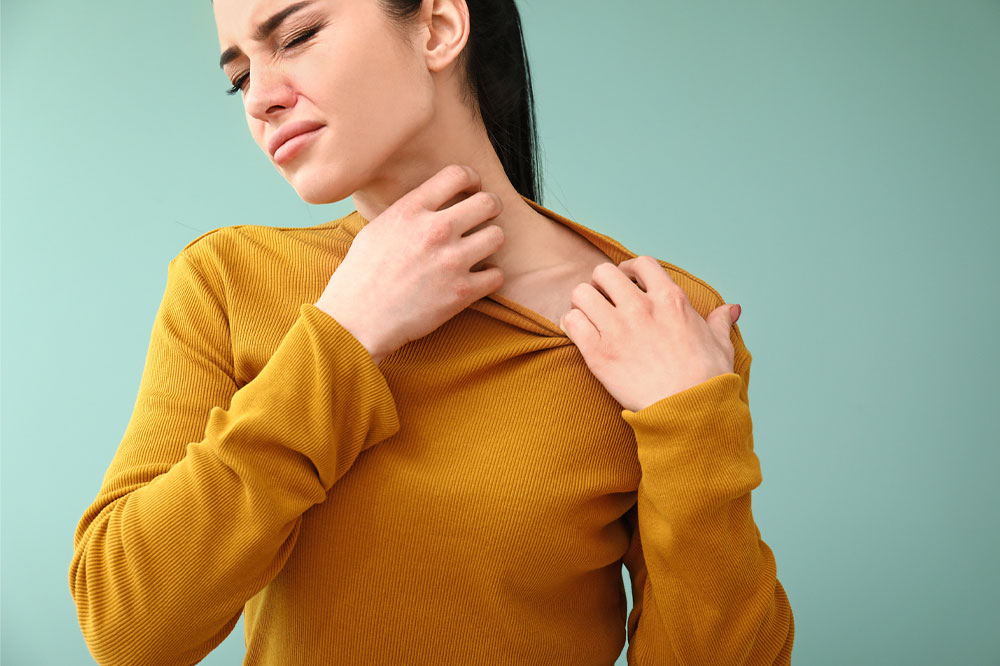Causes, Symptoms and Treatment for Different Types of Allergies
When the immune system of the body vehemently reacts to any foreign particle or allergen, such conditions are called as allergies. Due to ingestion, an application on skin, injecting inside the body or by stings of insects and contact with certain materials, allergies can occur, although the reaction to allergens differs from person to person. The common types of allergies include –
- Food Allergy
It is more popular among infants but also can happen to adults after consuming one or more type of food and even if the affected has been eating that for the past years.

Quite common in the industrial urban area with polluted air, this allergy results in continuous sneezing.
Animal furs or feathers can cause this from inhaling or coming in contact with skin, even if the animal is not nearby.
Usage of any Latex products like gloves or shoes can cause this allergy which is not fatal and can be treated by limiting the use of Latex.
Around 31 million citizens suffer from a runny nose and headache due to sinusitis that can be a result of climate change.
In damp places like the kitchen sink, bathroom, wet soil in the garden or in woods, molds can develop which if inhaled or comes in contact with the skin can cause allergies.
During the fall season, the pollination of certain plants can lead to allergies which can be treated with prescribed medicines.
From cosmetic or skin products, dyes, metals, fruit peels, washing products, etc., can cause allergy when they come in contact with the skin.
Various drugs like anticonvulsants, penicillin, chemotherapy medicines, NSAIDs, etc., can lead to breathing problems, rash, hives, etc.
Causes of allergies
There are a few risk factors for allergies like small age, Caesarean birth, having asthma, a family history of allergies and not getting enough exposure to sunlight. The common food that causes allergies are as follows:
- Fish, shellfish
- Milk, cheese, and other dairy products
- Egg (especially the white part)
- Peanuts, groundnuts, etc
- Wheat, Soy, corn products
- Mustard seeds, sesame seeds
- Eggplant, celery, beans, pumpkin
Other substances that can trigger the allergic reactions are as follows
- Having chemotherapy medicines, Sulfa medicines, antibiotics with penicillin and salicylates, anticonvulsants, and NSAIDs
- Feather, furs, and saliva from pets and animals
- Aerosols, tanning or dyeing chemicals, skincare and haircare products, fruit peels
- Molds formed in damp areas
- Change of seasons- rain, cold, etc.
- Rubber, latex, metal (zinc, lead, nickel, chromium etc), chemicals
- Stings of wasp, ants, mosquitoes, and bites of bugs, fleas, and flies
- Contact with moths, cockroaches, midges, caddis, etc.
Symptoms of allergies
A headache, sinusitis, sneezing, and runny nose are common symptoms of any allergies caused by inhaling allergens. A dry and persistent cough along with fatigue, vomiting, nausea from food allergies are common symptoms. Itchy nose, conjunctivitis, swollen eyes, itchy mouth, sneezing during Hay fever, Edema, hives and wheezing, itchy skin, rash, swollen face, flaking and peeling are also common symptoms. Low blood pressure, unconsciousness, lightheadedness, weak or rapid pulse, nausea, etc., are seen in Anaphylaxis.
Treatment of allergies
Avoiding known triggers and getting the help of a physician in case any of the above-mentioned symptoms occur, is the best way of prevention. Allergy medications prescribed by a doctor (nasal sprays, liquid or eye drops), epinephrine injections and allergen immunotherapy, sublingual drugs, etc., are also popular treatments for allergies.